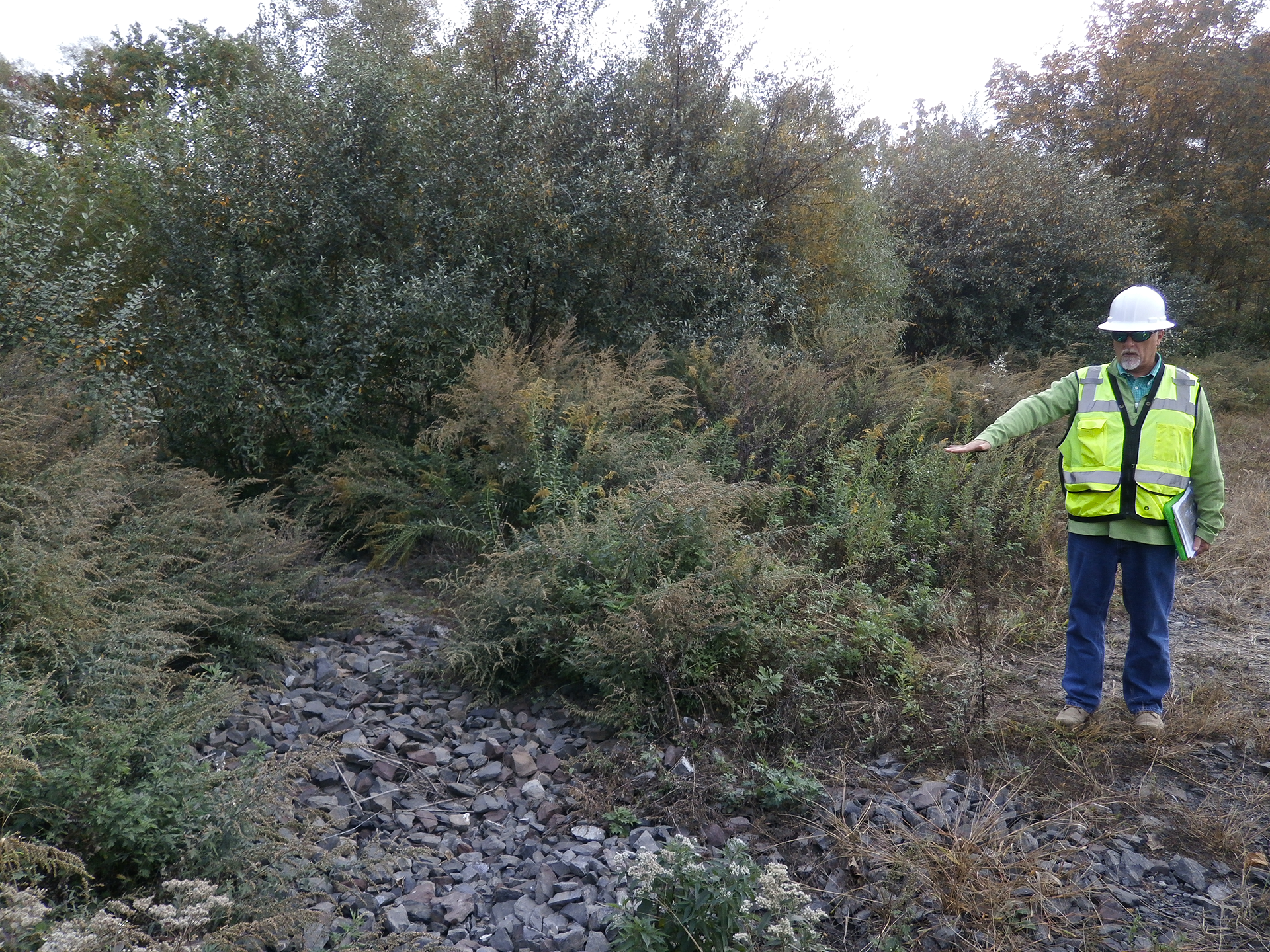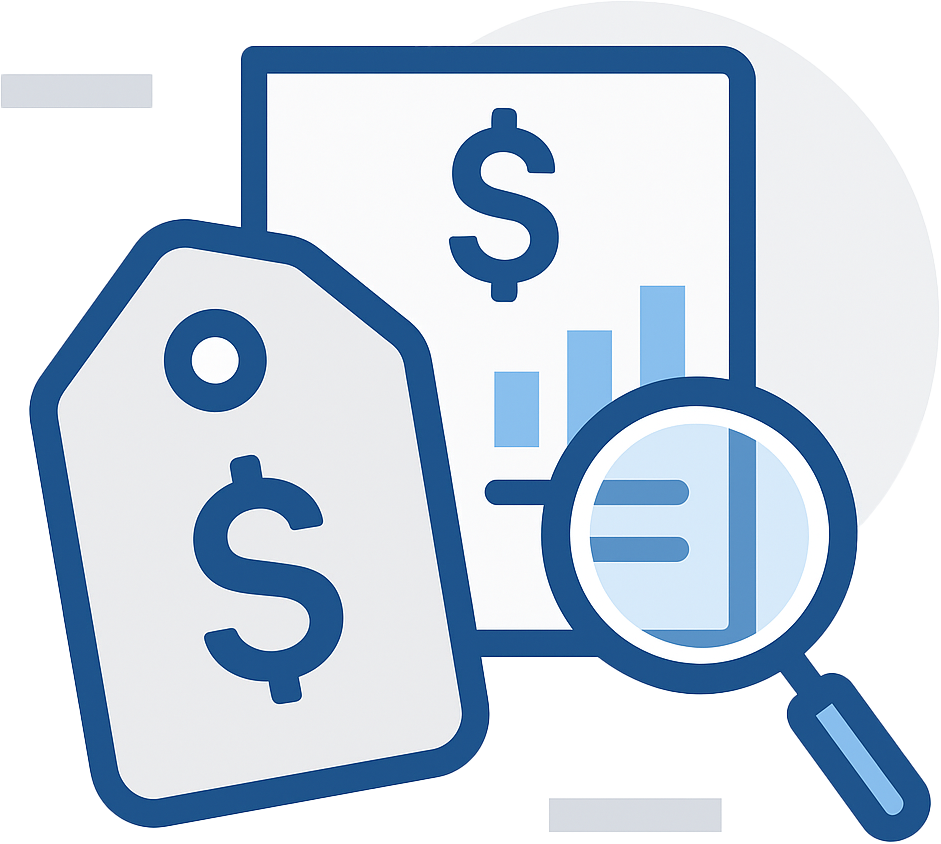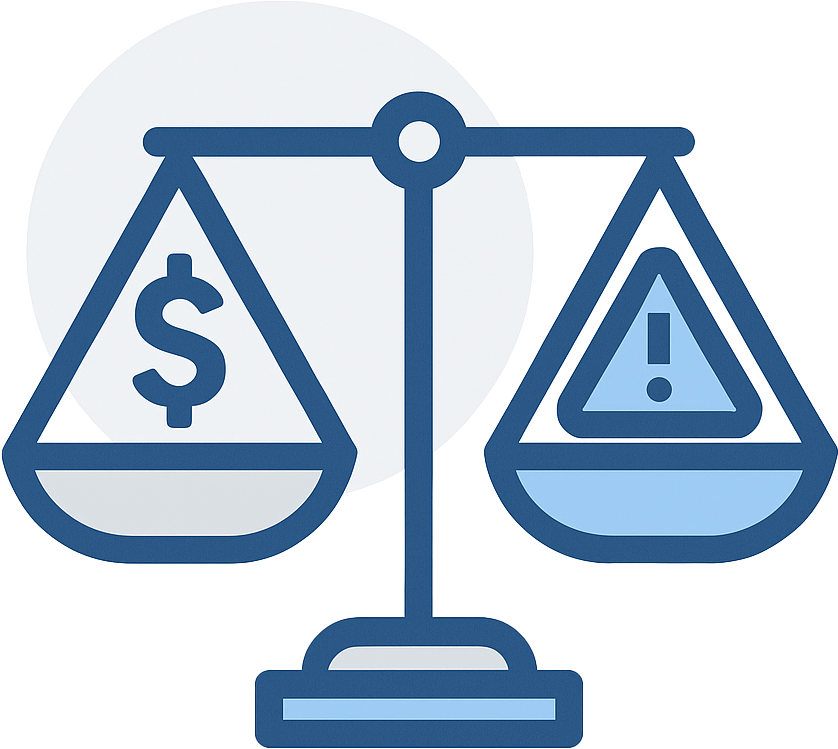Learn why you need a Phase I Environmental Site Assessment.
When it comes to Phase I's, we get a similar question over and over again - who needs a Phase I ESA? Do I NEED a Phase I? The issue is most people don't have much experience dealing with Phase I's, and the people who are asking them to get one, like a bank, the Federal Housing Administration, other government agency, or other lending institution, usually have pretty terrible information for their own customers.
Fortunately, the answer is usually pretty cut and dry, regardless of your situation, what you're looking to purchase or refinance, or where you're located. So let's dive in and figure out who needs a Phase I Environmental Site Assessment.
Before we get started I want to point out that this isn't legal advice, and we're not lawyers. When in doubt, talk to legal counsel who knows what they're doing when it comes to property transactions and environmental law.
Who needs a Phase I ESA?
The short answer is you don't explicitly need a Phase I Environmental Site Assessment unless someone, such as a bank, lending institution, government agency, property sellers or owners, or any other entity is requiring you to obtain one as part of a property transaction or the refinancing of a property. As far as we are aware, there are no laws or regulations requiring you to obtain a Phase I. So regardless of whether you're buying, refinancing, leasing, are gifted, or otherwise obtain a piece of property, a Phase I Environmental Site Assessment is only needed when someone asks for it.
Or! If you want liability protection against problems caused by contamination at the property in question, then you might need a Phase I ESA.
For example, a bank or lending institution may require you, the purchaser, get a Phase I ESA as part of the lending process. Most times when we see this the bank will treat it like a "check mark" on a list of action items, and place little to no importance on any type of environmental due diligence. Why? Because from our experience, banks tend to not be very well educated on the Phase I process, the protections a Phase I ESA offers, and why you would get a Phase I ESA in the first place. Usually they have a list of people who will provide you with a cheap Phase I, which we go over in Why you should avoid a cheap Phase I ESA. Having said that, lenders still know well enough that getting a Phase I makes good business sense, they just usually don't value the service itself.
Conversely, when people are looking to purchase a property for cash, or are obtaining property through other means, such as being left property in a will, there is nothing stating you need a Phase I ESA. In these instances getting a Phase I is good business and a valuable way to protect yourself from environmental liabilities, especially considering a Phase I is often a small price compared to the overall investment your likely making. If you're being given property, a Phase I ESA still makes sense as it's a way to figure out if you actually want the property, and what sort of environmental problems you could be getting yourself into by taking ownership of the property.
So again, Phase I's aren't needed unless someone else is demanding it, but what's that liability protection about?
We also pitch it like this, why would you get a Phase I Environmental site Assessment if you don't actually need one? For the same reason you go to the doctor on a regular basis, or why you would have a mechanic inspect a used car before you buy it - you don't want to find out down the road you're in trouble and facing large monetary problems when it's easy to prevent something bad from happening (or at least knowing about it) in the first place! A Phase I provides protection against the unknown, and can really protect you when it comes to purchasing properties. We cover Phase I's in detail in the following articles, all of which we encourage you to check out if you're new to the Phase I ESA process.
Do I need a Phase I ESA before renting or leasing a piece of property?
This is somewhat of a tricky question, and one that we do get a fair amount of time by prospective customers. Do you need a one? Nope, probably not, unless someone else is requiring it. Should you get one? That's entirely your call.
You aren't purchasing the property, so the liability protection that a Phase I ESA offers may be wasted on you, but for renters of any type of commercial or industrial property, a it might be a good idea to set a baseline level of any potential environmental concerns at the property. It might be in your best interest to either prove or disprove there is any environmental issues BEFORE you even start operating on the piece of property.
A Phase I could be a good way to set a benchmark so the landlord can't turn around a few years later and blame you for something that you didn't do. Conversely, this could come back to haunt you. If after you're done with the property, it's figured out by comparing the initial Phase I report to the present state of the property that you HAVE caused contamination, that Phase I might be somewhat incriminating by establishing that the contamination wasn't there before.
Do I need a Phase I Environmental Site Assessment when buying a home?
This is pretty rare in our line of work, but you can certainly go above and beyond and purchase a Phase I Environmental Site Assessment during the due diligence before buying a home.
So do you NEED one? No, you don't explicitly need one. However, there is nothing stopping you from getting one and learning more about any potential environmental concerns before your purchase your piece of property with a home on it. I'm sure we've all heard a story about someone buying a house and later finding out there's a buried oil tank behind the shed that no one knew about! A Phase I ESA might help you identify problems like that ahead of time.
Do I need a Phase I Environmental Site Assessment when buying other residential units?
If you're looking to purchase a multi-family home, or some type of apartment building, duplex, condo development, you name it, a Phase I might be required by the bank or other player in the purchasing process. We hear about this a lot from folks buying apartment buildings, or low-income housing.
For example, suppose there's an underground storage tank on-site which you and the current owner weren't aware of. Maybe it's been buried and long since forgotten, so there honestly wasn't anyone aware it was there. A Phase I might be able to help you identify this tank by reviewing environmental records that you may not be reviewing during the normal due diligence process of purchasing a home or other type of residential development.
If you were to buy this piece of residential property without a Phase I and contamination was found on-site, guess what? It's your problem. You are responsible for the cleanup costs, which can vary wildly, but are almost always pretty darn expensive.
So again, no you don't technically need one unless someone else is asking for it, but it is certainly in your best interest to purchase one. When you consider the potential issues a Phase I might hint at, such as vapor intrusion, groundwater contamination, etc., it's easy to imagine a scenario where residents are quick to sue the property owners because of perceived health issues due to on-site contamination. It's certainly something you should talk to qualified legal council about during the process.

Do I need a Phase I when refinancing?
Would you need a Phase I Environmental Site Assessment if you're refinancing? Maybe! A bank may or may not require a Phase I during the refinancing process. It all depends.
Let's suppose they do (because they probably will) in this example. A bank is going to want to ensure that they aren't putting up the money for a contaminated piece of property. You might have been on-site for 10 years, running your business the same way you did a decade ago when you first bought it, but a lot can change so banks are going to want some sort of protection from any environmental liabilities that may have occurred under your watch. There's two things to consider here:
- First, a Phase I is only good for around a year. After that, it's "expired" in a sense, and won't provide any type of liability protection. So a Phase I is a quick and easy way to establish if there are any environmental concerns but doesn't last forever.
- Second, let's be honest - a lot can happen in 10 years, or even one year! You could have a fire or a spill that released hazardous materials, vandalism, acts of God, or any other number of things could have happened which may have contaminated your property. That reason alone is why Phase I's have a shelf life of a year, because so much can happen that it's vital to get an up-to-date Phase I.
For these two reasons we often see banks ask for a Phase I during refinancing because they want to make sure that over the last couple of years you haven't turned your property into an environmental mess.
Do I need a Phase I ESA when buying a business?
That depends. Does the business come with any land, or are you just buying "the business"? If there's no land, than no, you don't need a Phase I ESA. Even if the business is leasing the land and you're just buying the business, you still might not need a Phase I.
Remember, a Phase I Environmental Site Assessment is going to look at the contamination in, on, or at the subject property. Keyword, PROPERTY. A Phase I is concerned about contamination happening to the property itself, ie, the ground, not the buildings or equipment. If a business transaction does not include any property, than a Phase I is probably unnecessary. Again, make sure you consult with qualified legal council if you're in this boat.
Do I need a Phase I when buying commercial real estate?
I think you can probably guess what I'm going to say at this point - no you don't need one, but you should consider one.
Commercial properties can be host to a range of various environmental concerns, and one business that's especially problematic are dry cleaners. Every town and city in America has at least one dry cleaner, with major towns and large cities having a bunch. Dry cleaners historically have used chemicals that are deemed hazardous, and may have caused contamination in and around commercial properties, so much so that when conducting Phase I's there are special considerations given to dry cleaners when conducting a review or nearby properties.
Since commercial properties cover a wide range of development and use, it's vital to know what kind of businesses have been at the commercial development. Some of the most contaminated places we've ever worked at happened to be commercial development with a variety of past uses.
So again, do you need one? Unless someone is requiring it, than no, you don't. But, you would be very smart to get a Phase I for a commercial property you're purchasing. Again, consult with qualified legal council during the purchasing process.

Do I need a Phase I Environmental Site Assessment when buying an industrial property?
When purchasing property that's being used for industrial purposes, you should always get a Phase I done. Again, unless a bank or someone else is saying you are required to get one, you don't explicitly need one. However, there are too many ways that contamination could have happened during its use now or in the past as an industrial operation, and a Phase I is going to be a relatively cheap form of insurance to protect yourself from environmental liabilities you didn't cause. As you can imagine, the cleanup costs of contamination at an industrial property can be huge, so spend a little money up front and protect yourself from huge fees down the road.
If you're reading this and are on the fence about getting a Phase I done on any type of industrial property you're looking to buy, we would advise you to err on the side of caution and spend the couple thousand dollars for a Phase I. Yes, that's somewhat biased coming from us, but it is in your best interest to protect yourself and your investment.

Do I need a Phase I ESA on vacant land?
We get a few phone calls a week with prospective customers asking us "the land's vacant, do I need a Phase I ESA?" We usually ask them a few questions:
- Do you know every past use of the property?
- Do you know every environmental record for the subject property?
- Do you know every past use of the surrounding properties?
- Do you know every environmental record for the surrounding properties?
We've yet to talk to someone who can answer yes to all those questions.
Vacant land could mean it's been developed and used in the past, it could have been cleared and used for storage of any kind, it could have had people illegally dumping on it, or any other number of potential issues! Unless you've researched every obtainable record for the property, and we mean every obtainable record from every source possible, than long story short, yes, you should get a Phase I ESA on vacant land, but no, you don't explicitly need one.
Do I need a Phase I Environmental Site Assessment on wooded or virgin land, or famland?
As always, whether or not you need a Phase I ESA on wooded or virgin land is going to depend on your lender. Even if you've had the land forever and are refinancing it, or buying it from a relative, or you name it, a bank or lending institution is going to want to see a Phase I.
Many people think that wooded or virgin land automatically means your property is free and clear of environmental issues. Sometimes yes, sometimes no. It all depends. Without a through property investigation, would you be aware of any suspect fill or illegal dumping concerns? We rarely meet investors who have personally traversed an entire large parcel of wooded or virgin land. Without a comprehensive records review, would you be aware of neighboring properties that may have contributed to contamination found on your property? I doubt it. Aside from that, getting a Phase I on virgin land, forested land, or any type of undisturbed land, there's other considerations that take place which are different from normal Phase I Environmental Site Assessments. There's even a separate standard (ASTM E2247 - 08 Standard Practice for Environmental Site Assessments: Phase I Environmental Site Assessment Process for Forestland or Rural Property) for properties over 120 acres.
So again, need it? No, unless someone is asking for it. We cover the details about this in our article: Do you need a Phase I ESA on vacant land?
So who needs a Phase I Environmental Site Assessment?
If you think about it, it really breaks down into two categories of people who need a Phase I ESA:
- People who are told they need one by an external group (lender, government agent, seller, etc.)
- People who want liability protection when purchasing a property.
And that's pretty much it! If you don't fall into one of those two categories, than you probably don't need a Phase I, but again, we're not lawyers, and this isn't legal advice, so when in doubt, talk to legal counsel to be sure. To learn more about Phase I Environmental Site Assessments click here to contact us, give us a call anytime at 888-762-0230 to speak to an environmental professional.














